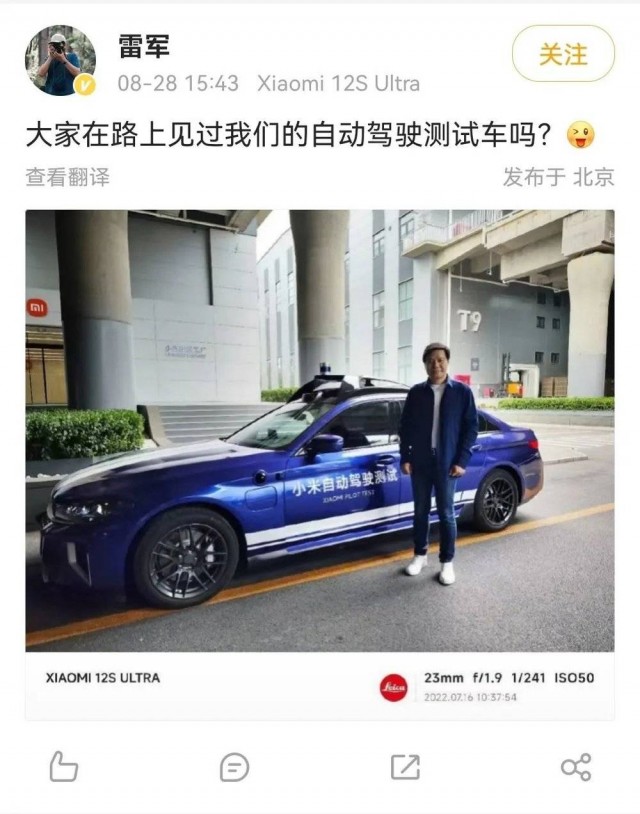Recently, according to Sina Finance, according to internal employees of Xiaomi, the Xiaomi engineering vehicle has been basically completed and is currently in the software integration stage. It is expected to complete the process in mid-October this year before entering the testing phase. Of course, the winter test (manual parts + system software) is a milestone in various tests, after which the mold parts are produced.” The employee further said, “Usually, after the winter calibration test, and the Various plans related to vehicle mass production are about to be officially upgraded.
Earlier, Xiaomi founder Lei Jun said that Xiaomi cars are expected to be mass-produced in 2024.
In addition, just recently, according to relevant media reports, Xiaomi’s first new car will be equipped with Hesai LiDAR, which has strong automatic driving capabilities, and the price ceiling will exceed 300,000 yuan.
On August 11, Xiaomi Group officially announced the research and development progress of Xiaomi’s autonomous driving technology. At the press conference, Xiaomi also released a live video of the road test of autonomous driving technology, fully demonstrating its autonomous driving technology algorithm and full-scene coverage capabilities.

Lei Jun, founder, chairman and CEO of Xiaomi Group, said that Xiaomi’s self-driving technology adopts a full-stack self-developed technology layout strategy, and the project has made more than expected progress.
According to the current information, the Xiaomi pure electric car will be equipped with the most powerful lidar hardware solution in the field of autonomous driving, including 1 Hesai hybrid solid-state radar AT128 as the main radar, and will also use several larger viewing angles and blind spots. The smaller Hesai all-solid-state radar is used as a blind-filling radar.
In addition, according to the previous information, Xiaomi Auto initially decided that the battery suppliers are CATL and BYD. It is expected that the low-end models produced in the future will be equipped with Fudi’s lithium iron phosphate blade batteries, while the high-end models may be equipped with the Kirin batteries released by CATL this year.
Lei Jun said that the first phase of Xiaomi’s autonomous driving technology plans to have 140 test vehicles, which will be tested across the country one after another, with the goal of entering the first camp in the industry in 2024.
Post time: Sep-09-2022